AFRICAN REGIONAL BIO-RISK MANAGEMENT (Certified Professionals 2023)
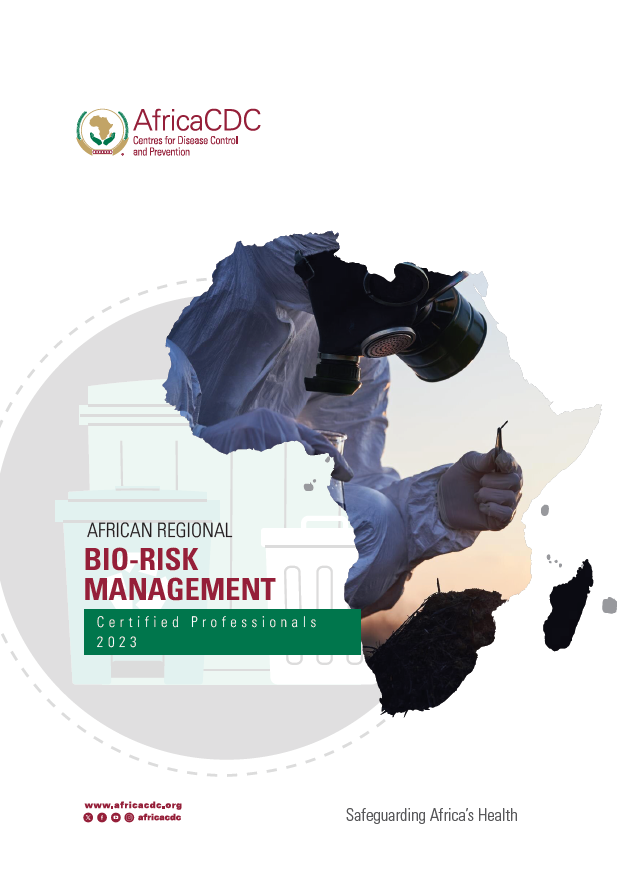
Dr Jean Kaseya talks to BBC News about Africa’s Health Priorities
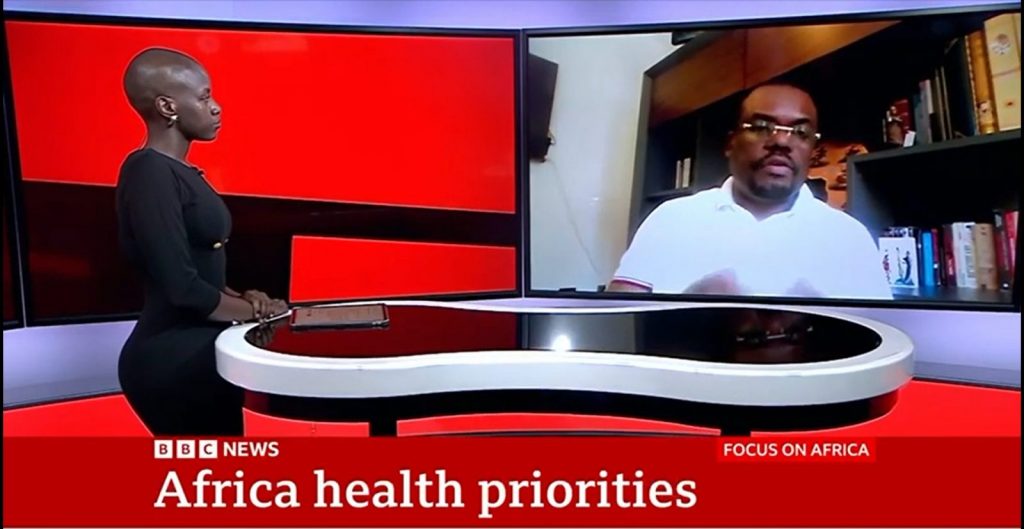
Creating Sustainable Health Solutions for Africa
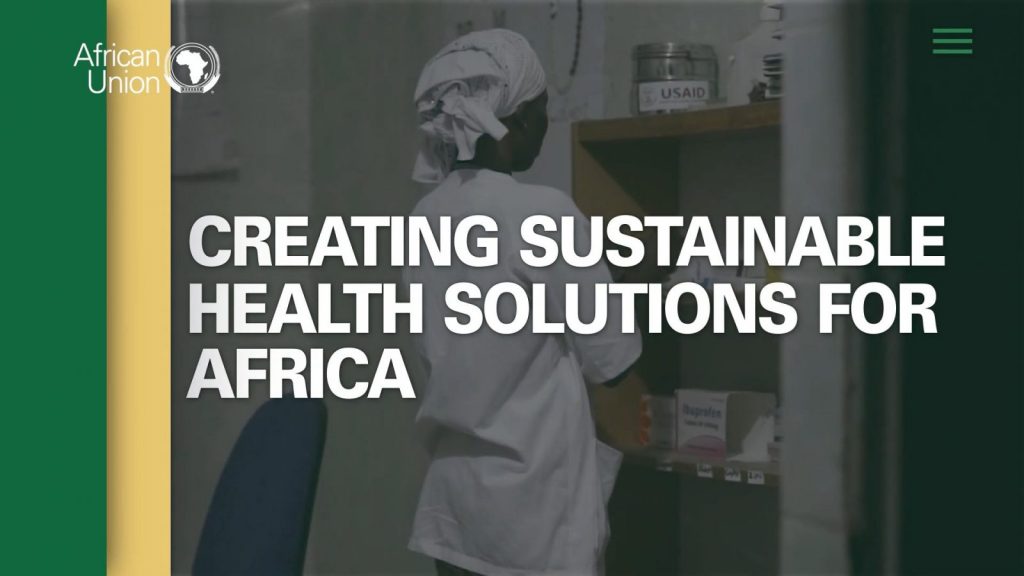
IPC | Legal Framework, Background and Annotations
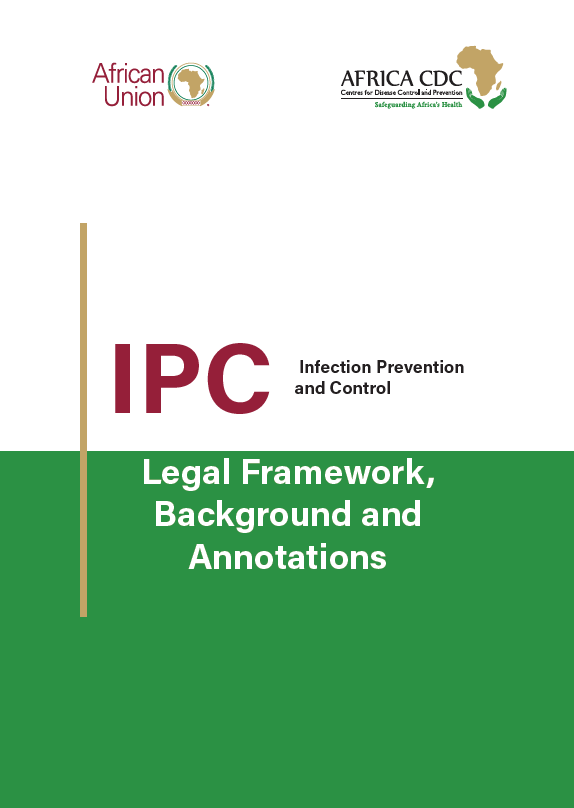
PREFACE In healthcare facilities, Infection Prevention and Control (IPC) requires a scientific approach to prevent harm caused by infection to patients and healthcare workers. Healthcare-acquired infections (HAIs), which include healthcare-associated antimicrobial resistance (HAI-AMR), are a major threat to health and safety. First, health systems have an ethical duty to “do no harm” when patients receive […]
World Antimicrobial Awareness Week (WAAW) Campaign for Africa
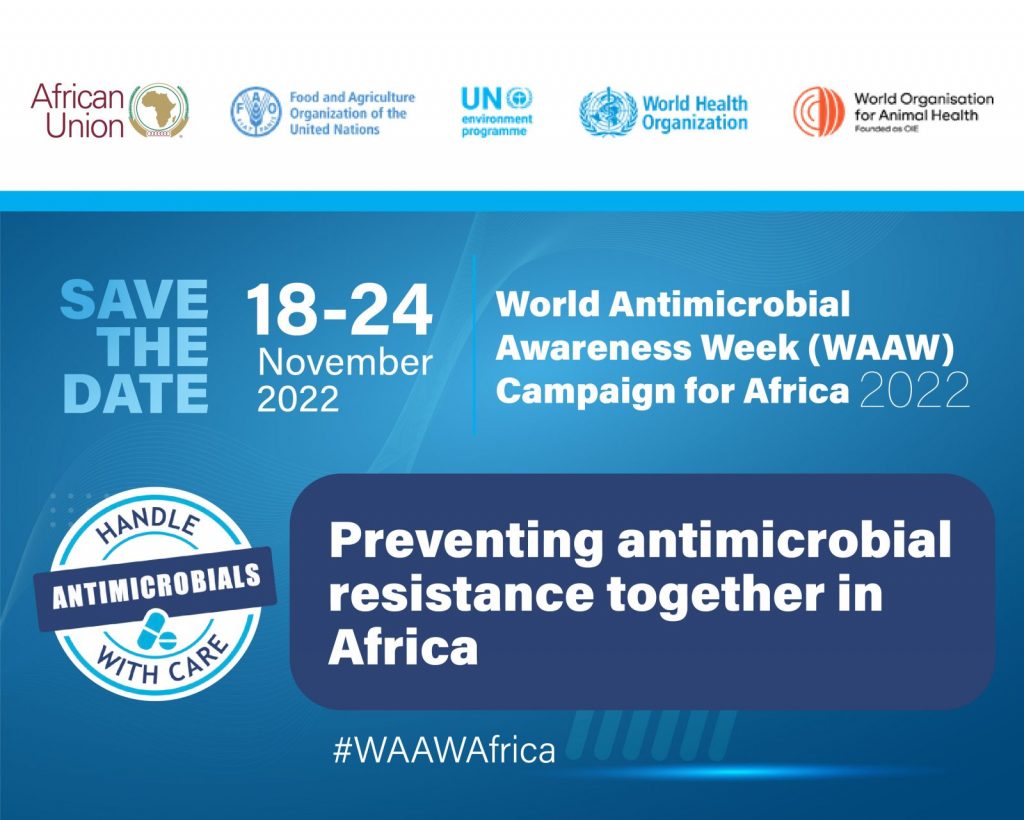
Global theme: ‘Preventing antimicrobial resistance together’ BackgroundAntimicrobial agents1, including antibiotics, have saved millions of lives by substantially reducing the burden of diseases in people, animals, and plants and hence improving quality of life, contributing to better food security and safety, and aiding to increased life expectancy.However, the emergence and spread of antimicrobial resistance (AMR) in […]
Infection Prevention and Control (IPC) Standard Operating Procedure (SOP) for Training/Meetings in the context of COVID-19
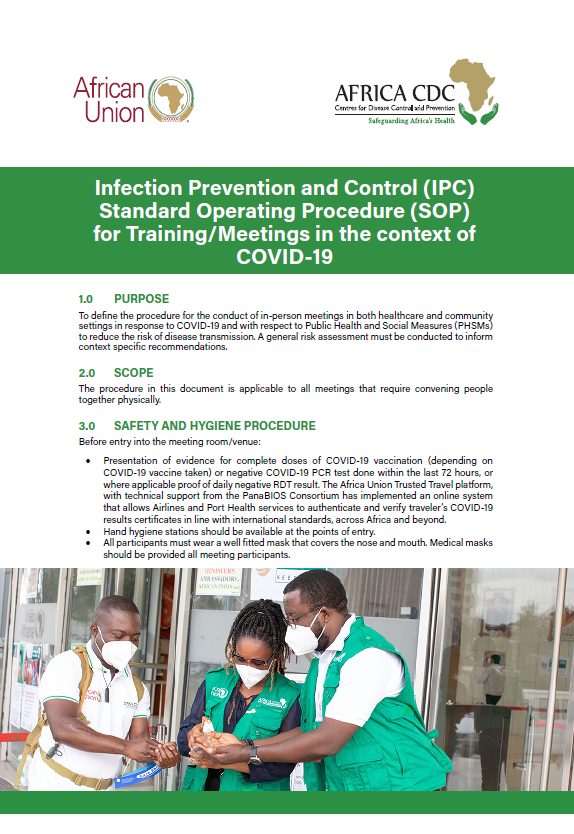
1.0 PURPOSE To define the procedure for the conduct of in-person meetings in both healthcare and community settings in response to COVID-19 and with respect to Public Health and Social Measures (PHSMs) to reduce the risk of disease transmission. A general risk assessment must be conducted to inform context specific recommendations. 2.0 SCOPE The procedure […]
Policy Brief for the Legal Framework on Infection Prevention and Control
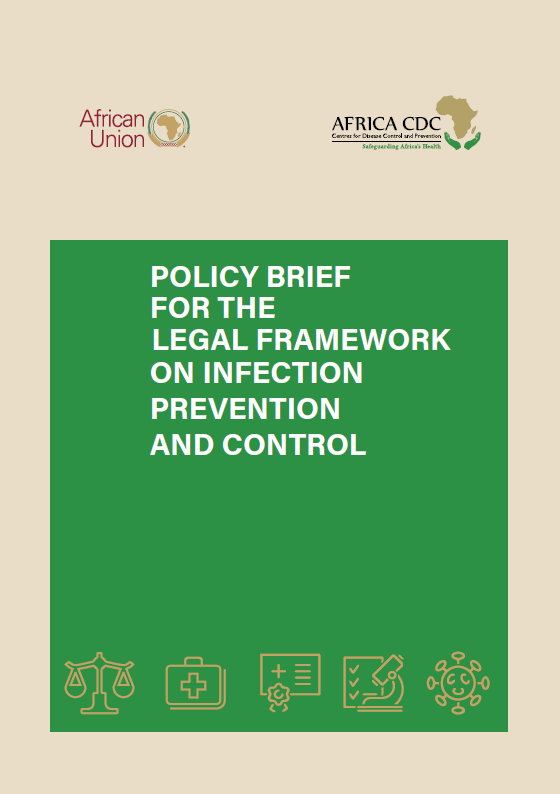
1. INTRODUCTION The Infection Prevention and Control (IPC) Legal Framework comes before the Specialized Technical Committee on Health and Drug Control for adoption and endorsement. The IPC Legal Framework is designed to guide Member States in the review and strengthening of laws and policies that support IPC at both the national level and in healthcare […]
FAQs: Waste Management for COVID-19 in Healthcare Settings for Africa
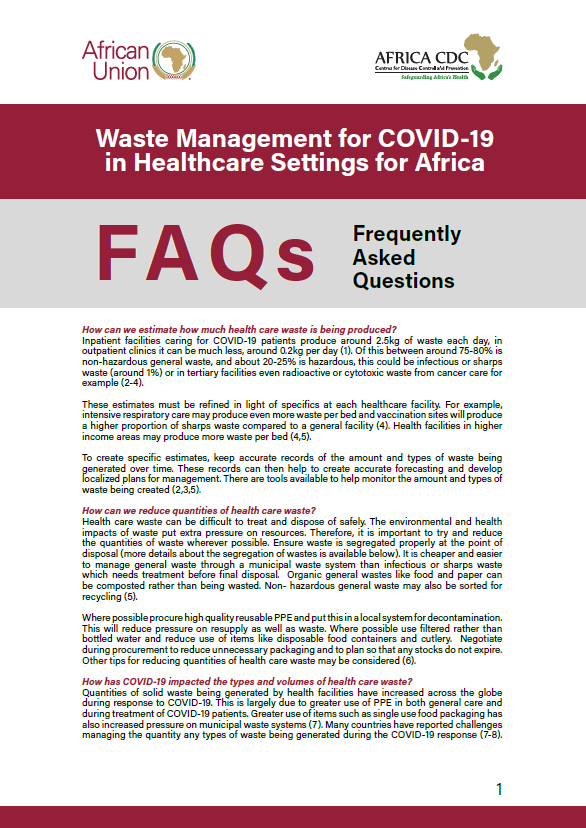
How can we estimate how much health care waste is being produced? Inpatient facilities caring for COVID-19 patients produce around 2.5kg of waste each day, in outpatient clinics it can be much less, around 0.2kg per day (1). Of this between around 75-80% is non-hazardous general waste, and about 20-25% is hazardous, this could be […]
Strategies for Managing Acute Shortages of PPE during the COVID-19 Pandemic
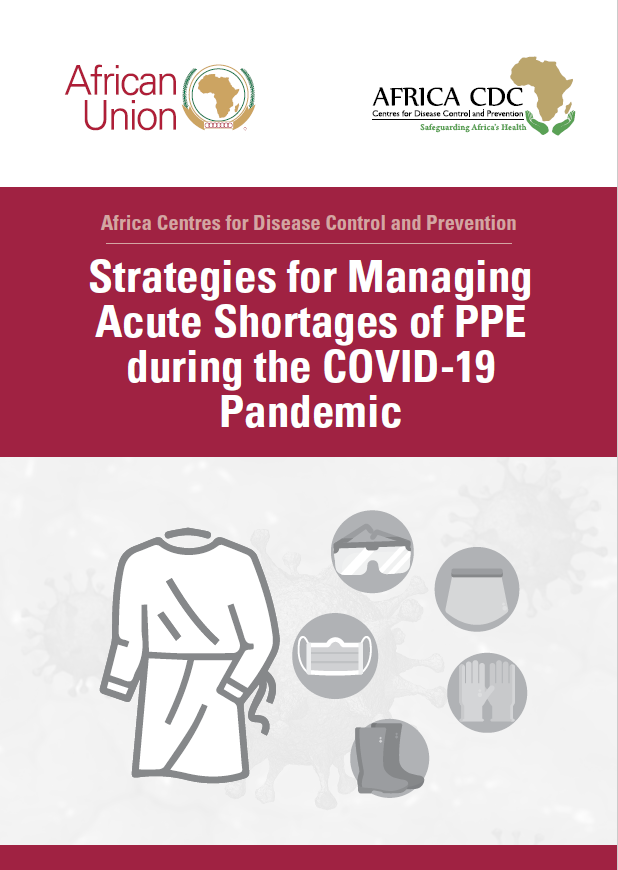
Recommendations for Personal Protective Equipment (PPE) are detailed in the Africa CDC guidance on the use of personal protective equipment for different clinical settings and activities (1). However, due to the disruptions in the global supply chain of PPE, African settings may face the risk of an acute shortage of PPE. African health systems should […]
African Antibiotic Treatment Guidelines for Common Bacterial Infections and Syndromes – Recommended Antibiotic Treatments in Adult Patients
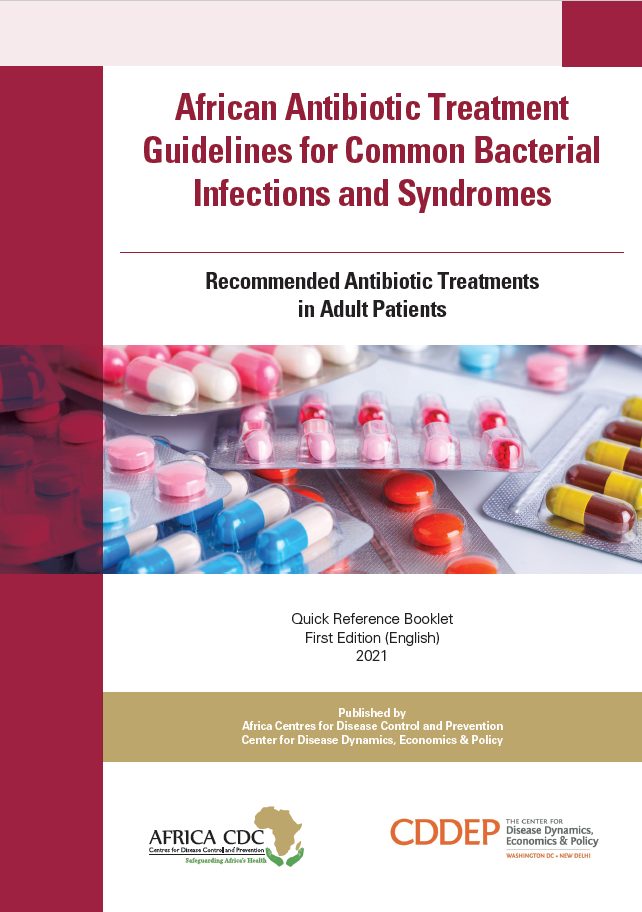
Principles of Stewardship Important considerations for the use of antibiotics include drug selection considering antibiotic spectrum of activity, adverse effect profile and availability of specific formulations (including those applicable to young children), likelihood of antibiotic resistance, route of administration, dosage, and duration of therapy. The decision to start and continue antibiotic therapy must be based […]
